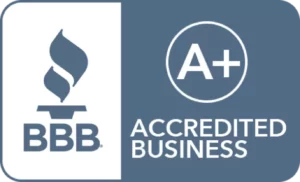Some investors will tell you that cryptocurrency is the future of money. Crypto, such as Bitcoin, may be risky and highly volatile, but it does have the potential to be a profitable investment. However, the taxation of cryptocurrency creates an unfavorable environment. The recent IRS crackdown on crypto-holders is a sign that stricter enforcement will come in the near future.
Taxation of Cryptocurrency
2019 is a “comeback” year for cryptocurrency. Experts believe cryptocurrency, such as Bitcoin, is starting to be taken more seriously across the globe. Digital currency may have a very successful future, however IRS taxation creates challenges for crypto-holders to report and pay taxes on all of the crypto transactions.
The IRS set its position on cryptocurrency for the first time in 2014, stating that virtual currency will be treated as property for U.S. federal tax purposes. As a result, the tax principles that apply to property will apply to cryptocurrency. The income or gains generated from the sale of crypto will be treated like a capital asset. It will be subject to short-term capital gains (ordinary income tax rates) and long-term capital gains (15% or 20% tax rates based on income).
In treating cryptocurrency like property, the IRS is enforcing strict record-keeping rules and significant taxes on the use of cryptocurrency.
IRS Letter 6174
Recently, the IRS sent out a letter known as 6174-A, warning crypto-holders that if they have not accurately reported their cryptocurrency income, they must file amended or delinquent tax returns on their transactions. In the letter, the IRS stated that failure to do so can result in civil and criminal enforcement by the IRS.
Furthermore, individuals who are compliant must sign a statement declaring compliance. The letter, which was sent out to over 10,000 crypto-holders, may just be the start of the IRS enforcing compliance.
It is likely that the individuals who received the letter were not personally targeted. However, this is proof that the IRS has become more aggressive on cryptocurrency holders. Those who have performed larger crypto-transactions have a greater risk of being audited.
How to Hold Cryptocurrency without Paying Tax
There is a way that individuals who purchase digital coins, like Bitcoin, can avoid being under the IRS’ radar: purchase crypto with an IRA or 401(k) retirement plan.
One of the benefits of using a retirement plan to purchase investments is that the income or gains the investment generates are tax-deferred in a pretax account. Tax on the income or gains is completely eliminated in a Roth account. Therefore, investors will not have to worry about the IRS coming after them for unpaid taxes.
The best way to hold cryptocurrency is with a self-directed retirement plan administered by a passive custodian. Self-Directed retirement plans, like the Self-Directed IRA, allow investors to make any investment that is legal and IRS approved. Whereas holding cryptocurrency in an IRA established by a bank or financial institution has restrictions.
The majority of banks and financial institutions who offer a Self-Directed IRA will limit you to the assets they provide, such as ETFs and mutual funds. They do not share the benefits of alternative investments, such as cryptocurrency to their clients because they do not earn money that way.
Self-Directed IRA
Investors can legally hold cryptocurrency in a Self-Directed IRA. Like the Traditional IRA, contributions for 2023 is $6,500 for participants under the age of 50. If you are over 50, you have a $1,000 catch-up contribution which sets the maximum contribution at $7,500.
Anyone can open a Self-Directed IRA, as there are no income limits to establish this retirement plan or specific eligibility requirements.
Learn the rules and prohibited transactions of the Self-Directed IRA to remain IRS compliant.
Solo 401(k)
Investors can legally hold cryptocurrency in a Solo 401(k) plan, also known as the Self-Directed 401(k). The contributions for 2023 is $66,000 if you are under the age of 50. If you are over 50, you can reach a maximum contribution of $73,500 for 2023. The Solo 401(k) plan has the highest contribution limits of any retirement plan.
The plan offers two types of contributions, one as an employee and one as an employer. First, there is the elective deferral which allows the employee to contribute a dollar-for-dollar amount. Then there is the profit sharing contribution for the employer to make based on the percentage of income.
There are two eligibility requirements to establish the Solo 401(k) plan.
- The presence of self-employment
- The absence of full-time employees (works less than 1,000 hours a year)
Learn the rules and prohibited transactions of the Solo 401(k) to remain IRS compliant.
Important Note
At IRA Financial, we administer self-directed retirement accounts, primarily the Self-Directed IRA. We offer Checkbook IRA custodial services along with full-service IRA administration services. However, we do not offer investment advice or tell investors what investments to purchase. We educate our clients on the types of investments they can make in a self-directed retirement plan, such as digital currency. Cryptocurrency is a risky and volatile investment with strict taxation rules. However, if investors choose to purchase crypto, the best way to hold it is in a self-directed retirement plan.











